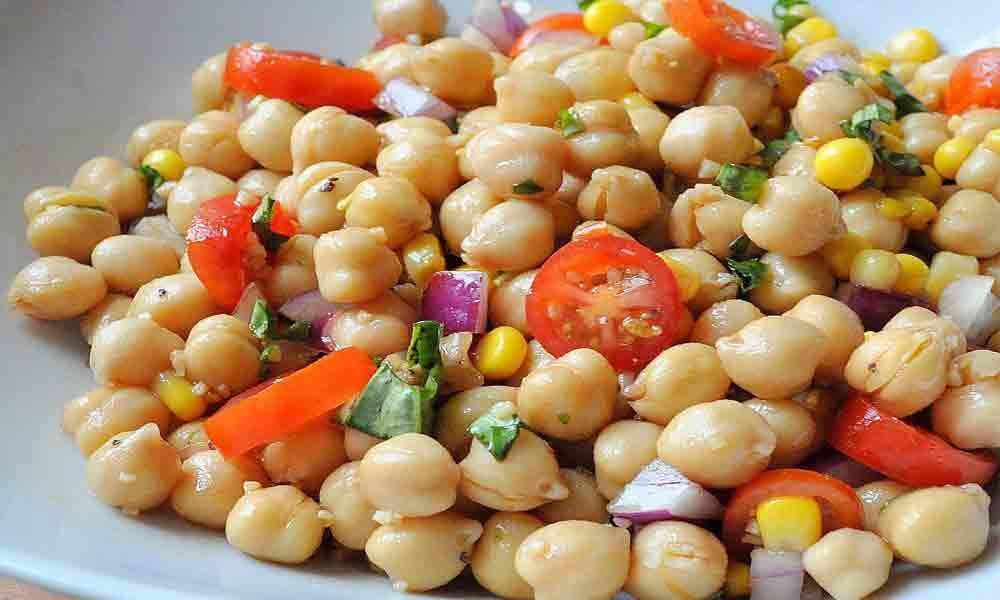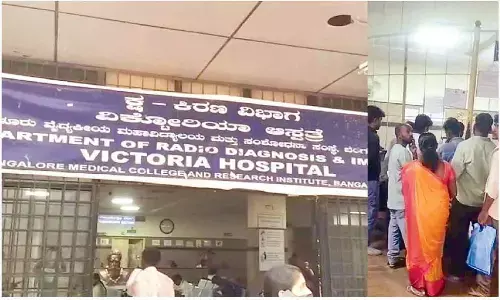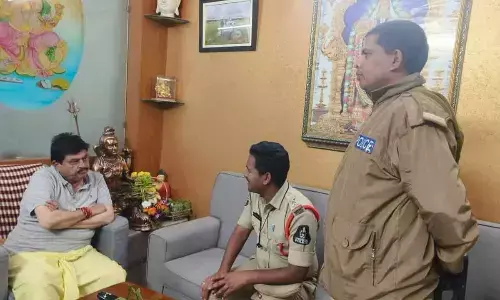Researchers identify genes to develop high-yielding chickpea

India, for instance as the biggest consumer of pulses and oils in the world, faces increasing production gap. These new research discoveries could take India closer towards attaining self-sufficiency in pulse and oilseed crop production
Hyderabad: Two major breakthrough discoveries including one on genome sequencing of 429 chickpea lines from 45 countries and another one on developing reference genome assembly of groundnut have been published as two research papers in Nature Genetics, the top-class research journal in the area of genetics.
Prof. P.B. Kavi Kishor, Emeritus Professor and Dr. Vanika Garg, former joint PhD student of Prof. Kavi Kishor and Prof Rajeev K Varsheny, Research Program Director, ICRISAT from Department of Genetics, Osmania University are part of these teams and co-authors on the two Nature Genetics papers. These teams were led by Prof Rajeev K Varshney of ICRISAT. The chickpea team comprised of 40 scientists from 21 research institutes and the groundnut team comprised of 78 scientists from 23 research institutes around the world.
"Osmania University is very excited to be the part of these major breakthrough research in crop genetics. The present effort by the Department of Genetics, Osmania University in collaboration with ICRISAT is a big leap towards achieving climate resilient chickpea and peanut crops that are useful to the farmers of India, said Prof. S. Ramachandram, Vice-Chancellor, while addressing the media in Osmania University.
Prof. P. B. Kavi Kishor highlighting the importance of these two breakthrough discoveries said, "These discoveries on one hand provide insights on several biological phenomenon, on the other hand, both of these discoveries offer the solutions to develop better crops of chickpea and groundnut in India and elsewhere in the world". He added, "These studies will help providing groundnut with high protein and high quality oil to India, especially when its population is in need of cooking oil to feed its 1.3 billion population".
Dr. Vanika Garg, who has just completed her PhD study from the Department of Genetics, Osmania University, was heavily engaged in genome analyses in both of these studies at ICRISAT, said, "I am very excited to see our research published as two papers in Nature Genetics Journal. I am grateful to Osmania University and ICRISAT for providing me opportunities to work on these exciting projects". She shared her experience while working on these multi-disciplinary and multi-institutional and international projects, "Although initially it was quite challenging to complete perfect analysis well in time especially to the world's top class scientists, I had a great opportunity to learn and become an enthusiastic and hardworking scientists".
"While chickpea study provided us genes for developing heat tolerant and drought tolerant chickpea varieties, we have got better knowledge and genes from the groundnut study to develop disease resistant, drought tolerant and high protein and oil quality groundnut varieties", said Prof. Rajeev Varshney, the leader of both studies and corresponding author on two papers. "It is a great opportunity for PhD students working at ICRISAT to be registered and work with universities like Osmania University. The joint PhD students like Dr. Vanika Garg also helped establishing and strengthening collaboration with ICRISAT and Osmania University.
The chickpea research equipped the team with key insights into the crop's genetic diversity, domestication and agronomic traits. The study also mapped the origins of chickpea and its ascent in Asia and Africa. This is the largest-ever exercise of whole-genome resequencing of chickpea. More than 90 per cent of chickpea cultivation area is in South Asia.
Drought and increasing temperatures are said to cause more than 70% yield loss in chickpea globally. Chickpea being a cool season crop is likely to suffer further reduction in productivity due to rising temperatures. This study has identified several candidate genes for 13 agronomic traits including for heat and drought tolerance. The study established a foundation for large-scale characterization of germplasm, population genetics and crop breeding. It also helped understand domestication and post-domestication divergence of chickpea.
The groundnut study reports the high-quality reference genome of groundnut as well as untangled the genome architecture of 52 lines of groundnut. The team has identified a total of 83,709 protein coding genes. Further, genes implicated with seed size, seed colour, protein and oil contents, disease resistance and atmospheric nitrogen fixation have been discerned for the first time in groundnut.
The polyploid genome of peanut has provided insights into the evolution of peanut and other legume chromosomes. The data generated also suggest that independent domestications formed peanut ecotypes. The peanut genome sequence aids mapping and candidate-gene discovery for traits such as seed size and color, foliar disease resistance and others.
These studies have been carried out by ICRISAT, a leading CGIAR research institute in close collaboration with partners from the advanced research institutes, the National Agricultural Research Systems and private sector. India, for instance as the biggest consumer of pulses and oils in the world, faces increasing production gap. These new research discoveries could take India closer towards attaining self-sufficiency in pulse and oilseed crop production.
Prof. Ch. Gopal Reddy, Registrar, said the University has consistently placed a lot of emphasis on research and the outcomes are for the betterment of the society.










